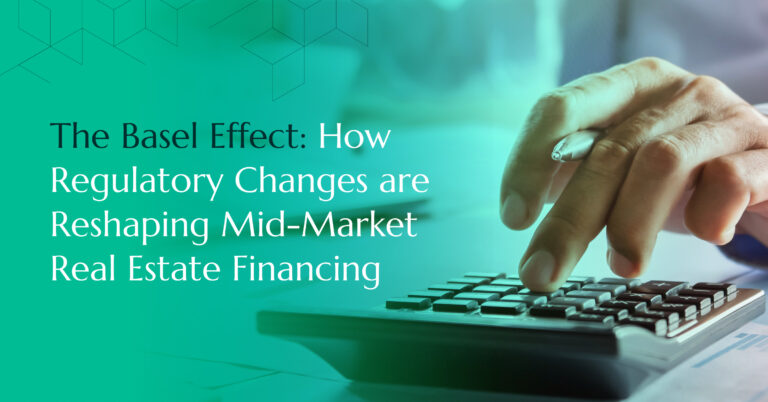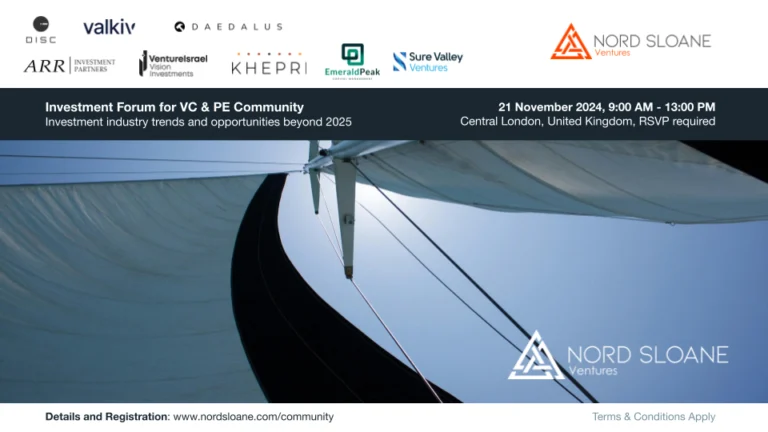In the dynamic world of private credit, trust isn’t just an asset – it’s a fundamental requirement. As we navigate the complexities of European mid-market real estate in 2025, investors are no longer satisfied with promises alone. They demand partners who demonstrate unwavering commitment to process, compliance, and transparency.
Whether considering high-net-worth investors, institutional clients, or family offices, experience is critical, but the investment process and compliance are equally important. Long-term relationships in investment are built on mutual trust and transparency, as are investment markets; without both, confidence can very quickly fade.
The European real estate sector is undergoing a transformation at the moment; traditional lenders have been forced to retreat due to additional capital requirements under Basel. Interestingly, the Bank of England recently announced a one-year delay on Basel 3.1 regulations due to uncertainty in the US and Europe, causing yet more confusion.
The European real estate landscape
Before we examine the power of process, compliance, and the broader trust factor when working with investors, it’s important to appreciate the current investment environment within the European real estate sector.
According to Statista, the European real estate market is expected to hit US$180 trillion at the end of 2025, with residential real estate accounting for around $150 trillion and commercial property making up the balance. The corresponding figures are expected to hit $170 trillion and $32 trillion by the end of 2029, with a total market value of $202 trillion. If we turn our attention to the midmarket, the introduction of new regulations in the shape of Basel is having a significant impact.
Increased capital adequacy requirements and a more cautious approach to risk have prompted many traditional lenders to leave the European midmarket real estate sector. This, together with a challenging European and global economic environment, has left a substantial funding gap in the market. This is currently being addressed by private equity companies bringing together investors to provide commercial credit for various property developments and acquisitions.
Just recently, the Bank of England announced a further one-year delay in implementing Basel 3.1 regulations due to the EU and US authorities dragging their feet. Unfortunately, this has created even more uncertainty, which is thankfully being filled by private credit in an innovative and highly personalised manner.
The pillars of trust in private credit
We work closely with financial advisers, providing a comprehensive approach to investment in private credit as a means of building investor confidence. This ensures they can clarify how we operate when talking to their clients and potential investors in private credit. There is a lot to take into consideration, such as:-
Detailed due diligence
The ability to provide potential investors with detailed due diligence is a critical element of the services we offer. This creates an air of trust and confidence and has assisted on numerous occasions in nurturing long-term relationships with both advisers and investors.
Risk assessment methodologies
When considering an investment in private credit, as with any other investment, there is no potential return if there is no risk. We pride ourselves on being able to assess the risk against the possible rewards in a structured manner. This ensures we can compare and contrast different investments on a like-for-like basis when looking at the primary metrics.
Transparent decision-making frameworks
Transparency is one of the main foundations of our company, employee culture, and relationships with advisors and investors. We are upfront from day one about how we operate, the services we provide, and potential returns. Our private credit investments are held as part of a diversified portfolio fund, which ensures there is no excessive exposure to one or a small number of areas.
Expert-driven investment strategies
Even though investment markets are constantly changing, the team at Emerald Peak has decades of experience at the cutting edge of finance. This ensures a steady hand on the tiller as we navigate through choppy waters from time to time. Expertise and experience are critical, and when you combine the two within a formal investment structure, this helps to instil deep-seated confidence.
Mitigating potential investment risks
Successful investors are respectful of risk but not unduly concerned, with an ability to identify potential risks and rewards, the risk-reward ratio. It’s also important to recognise that while we’d all like to outperform markets, consistency delivers long-term returns. Also, an issue often overlooked with finance is that it is as much about protection as it is about enhancing long-term wealth.
Each of the above considerations, in isolation, provides potential investors with confidence, the benefits of well-defined processes, and compliance protection. However, combining these elements allows you to nurture deep trust between investment funds, managers, and investors.
Compliance: Safeguarding investor interests
While regulations and compliance issues tend not to receive widespread accolades, it’s essential to recognise the importance of compliance in protecting investor funds. A critical element of the trust factor, there are several issues to consider:-
Key EU regulatory requirements
While private equity is not regulated under traditional banking regulations, such as Basel, it’s essential to appreciate regulatory obligations for the sector. If we look at the EU in particular, we have:-
- AIFMD (Alternative Investment Fund Managers Directive)
- MiFID II (Markets in Financial Instruments Directive)
- European Securities and Markets Authority (ESMA)
- National Competent Authorities (NCAs)
- Sustainable Finance Disclosure Regulation (SFDR)
Even after Brexit, the rules and regulations in the UK are very similar, with NCAs replaced by the FCA. In the US, the SEC oversees financial advice and investment, and the Dodd-Frank Act also impacts private equity firms operating in or raising funds from the US.
Reporting transparency standards
Transparency is critical not only for investment markets and investment funds but also for the relationship between investment managers and investors. The ability to make informed decisions based on performance, risk exposure and the decision-making process also helps mitigate potential disputes. Able to look back, comparing and contrasting performance over the years can help to identify consistency and the opposite end of the spectrum, volatility.
ESG integration in investment decisions
As we touched on earlier, the EU, as well as the UK, US, and other countries, is now taking a proactive approach to integrating ESG in investment decisions. This is not a short-term trend – here today, gone tomorrow – but a long-term commitment to environmental, social, and governance considerations. While often associated with the younger generation of investors, this is now attracting the attention of much broader age ranges.
Importance of independent audits
Aside from regulatory obligations, those operating in the financial services industry and fund management are legally obliged to carry out independent audits. Modern-day audits go beyond simple finances, taking in compliance and risk management practices. Confirmation that companies adhere to best practices in governance creates an added layer of trust and confidence amongst investors and advisory partners.
Compliance is a competitive differentiator
It may seem strange to identify compliance as a potential competitive differentiator when you assume that all parties in the industry have numerous regulatory obligations. Regulations and compliance levels vary between countries and continents, but some companies will go above and beyond their statutory duties. This is an area where we seek to add extra protections and transparency for investors, going above and beyond basic regulatory requirements.
Introducing enhanced best practices into investment businesses creates additional levels of protection and confidence amongst investors.
Technology’s role in building trust
If we take a step back, the role of technology in any industry will only be as successful as the way it is introduced, utilised and the levels of transparency with customers. Rumours and counter rumours, many of which are untrue, can create an air of uncertainty amongst investors and third parties. The knock-on effect can be significant, reducing appetite for investment in new technology, which would have benefited investors, those seeking investment and the financial services industry.
The areas in which technology can assist are well documented and include:-
- Transparency and reporting using data analytics and real-time data
- Enhanced due diligence by leveraging the use of AI
- Cybersecurity and transaction transparency with the use of blockchain technology.
- Automation and efficiency, such as onboarding and compliance checks, override human error.
- Access to market insights using AI tools to forecast market trends and identify opportunities for further investigation.
- Real-time communication, which is critical in any investment market
- Bespoke solutions, the ability to create highly personalised investment opportunities tailored to client risk profiles.
It’s essential to clarify with clients that technology is not taking over. It is still under the control of human operators, and quality checks are constantly carried out to ensure that output from high-tech systems is accurate and appropriate.
The long-term value of trust
Trust is a critical element of everyday business; in fact, it’s important for non-business matters, but valuing it can be challenging. You can’t buy or sell it; you can’t even touch it. As a company, we appreciate the key elements that encourage trust among investors, and we achieve this with the combined experience of our team.
In summary, the main factors include:-
- Robust processes – clear investment strategies, rigorous due diligence and operational efficiency
- Strong compliance and governance – regulatory adherence, independent oversight and ethical standards
- Transparency – regular reporting, open communication and fee clarity
- Track record and reputation – performance history, reputable leadership and market recognition
- Risk management – diversification, stress testing and clear risk frameworks
- Technology and innovation – investor portals, cybersecurity and automated monitoring
- Client-centric approach – customise solutions, investor education and responsiveness.
- Cultural values – accountability, consistency and commitment to ESG principles
- External validation – third-party partnership, industry benchmarking and independent ratings.
Due to our detailed approach to process and compliance, encouraging sustainable trust among investors helps nurture long-term relationships, reduce the risks of short-term thinking, build a reputation for reliability, and encourage recurring investment potential.
Conclusion
In a world where markets evolve at lightning speed, and uncertainties abound, trust remains the cornerstone of enduring success in private credit. It is not built overnight or guaranteed by reputation alone – it must be earned through every process, decision, and interaction.
At Emerald Peak, we understand that trust is not just an expectation but a responsibility. By combining rigorous processes, strong compliance, cutting-edge technology, and a client-centric ethos, we empower investors to confidently make informed decisions. In doing so, we don’t merely manage investments; we cultivate partnerships that stand the test of time.
Ultimately, trust is the currency of the investment world, more valuable than any return. It is the bridge between ambition and achievement, turning strategies into legacies and investors into advocates. For us, trust is not just a foundation – it’s the very future of private credit.



